- Home
- James Hadley Chase
1979 - A Can of Worms Page 6
1979 - A Can of Worms Read online
Page 6
“Medium build, stocky, heavily bearded, dark, thick uncut hair, wearing jeans and a dark T—shirt.”
Coldwell wrote this down, then opening a drawer in his desk, he took out a folder. From it, he produced a glossy mug shot and pushed it across the desk.
“That him?”
I studied the photograph. It showed a clean-shaven man of around twenty-five with close cropped black hair, lean features and small vicious eyes. The eyes gave him away. This was my hippy all right.
“Could be.” I put on my doubtful expression. “The light was bad, and he was wearing a beard and his hair was long, but . . . yeah, I wouldn’t want to swear to it, but could be.”
Coldwell took back the photograph, found a felt pen and gave the face a beard and long hair and pushed the photograph back to me.
I had no doubt then that this was my hippy.
“Still wouldn’t want to swear to it, but I’m pretty sure this is the guy.”
Coldwell sucked in his breath.
“So, go on.”
“I wondered who he was,” I said. “I meet all kinds on the waterfront, and I hadn’t seen him before. He seemed jumpy, and he kept looking around as if he thought he was being watched. He asked me if I knew anything about boats going to the Bahamas. I said I didn’t, but Al Barney could tell him, and he was sure to find him in the Neptune tavern. I warned him it would cost him a couple of beers. He muttered something and took off. He headed for the tavern, paused as if changing his mind, and I lost sight of him. On the ground where he had been standing was this lighter. I guess he must have had a hole in his pocket.” I gave Coldwell my cocky smile. “Being a smart shamus, I told myself this guy might be on the wanted list. From Nassau, it’s no sweat to get to Havana. Right?”
Coldwell nodded.
“So I took the lighter to Harry and asked him to check the prints. You know the rest.”
“Havana . . . yeah, it figures,” Coldwell said thoughtfully. He reached for the telephone, dialled, then talked to someone about boats leaving for Nassau. He scribbled, said he was obliged and hung up. “The Chrystabelle sailed for Nassau this morning. She’s an old tub that does a regular run twice a week to the islands. This guy could have smuggled himself aboard. Nice work, Bart. I’ll get his description on the wire. He might be spotted in Nassau. It’s a long shot.” He paused as he reached for the telephone. “Was he alone?”
“He was when he spoke to me. Should he have been with someone?”
“He’s supposed to be travelling with his wife. Look, Bart, I’ve got to get busy, then I’m going down to the waterfront.”
“I’ll drive you down. My car’s outside. If he didn’t get on the boat, he might still be around and I might spot him.”
Coldwell nodded and began dialling.
“I’ll wait in the car,” I said and left him.
Getting into the Maser, I did some quick thinking.
Travelling with his wife. Was that the explanation of the two beds and the woman’s things I had seen in the tent?
Coldwell joined me in five minutes, and I headed for the waterfront.
“Who is this guy, Lu, and what’s all the excitement about?” I asked.
“If it is him, his name is Aldo Pofferi: an Italian terrorist. He’s wanted for three murders and his wife for two murders. The Italian police say they are the most dangerous of the Red Brigade.”
“What’s he doing here, for God’s sake?”
“Italy got too hot for him. He’s over here to raise money for the Brigade. Anyway, that’s the story. Could be. He and his wife robbed three banks in Milan. The police alerted us to look out for him. They think he reached New York about a month ago. We have been digging around, but have come up with nothing. These prints you found are our first break.”
I pulled up on the waterfront and we both got out.
Detective Tom Lepski with Detective Max Jacoby came out of the crowd and joined us. Quickly, Coldwell explained how I had run into Pofferi and had been smart enough to have the fingerprints on the lighter checked.
“You’ll make a good shamus yet, Bart,” Lepski said with a grin.
I considered him the smartest detective on the force: an opinion he shared with me.
Coldwell showed him and Jacoby Pofferi’s photo: the one to which he had added the beard and long hair.
“Bart’s seen and talked to him. So suppose he goes with you, Tom, and Max and I work together? He’s damned dangerous, so watch it.”
“Yeah.” Lepski looked at me. “Carrying a gun?”
“Always do.”
“If there’s any shooting, cover me,” Lepski said. “Let’s go.”
Leaving Coldwell and Max to cover the yacht basin and the vendors stalls, Lepski and I walked along the quay towards the commercial harbour.
“Let’s talk to Al Barney,” Lepski said. “That old soak knows everything going on around here.”
We found Al Barney, sitting on a bollard, holding an empty beer can. He regarded Lepski with a disapproving stare.
“Hi, Al,” Lepski said, coming to rest before Barney.
“Evening, Mr. Lepski.” Barney’s little eyes shifted to me, then back to Lepski.
“We’re looking for a guy.” Lepski gave a description of Pofferi. “Seen him around?”
I knew this was the wrong approach. The only way to get information from Barney was to take him into the Neptune tavern and buy him unlimited beer.
Barney tossed the empty beer can into the harbour as a hint, but Lepski didn’t rise to it.
“Seen anyone like that around?” he repeated in his cop voice.
“Can’t say I have,” Barney said indifferently. “All these young punks look alike.”
“This punk’s a killer,” Lepski barked.
Barney shifted his eyebrows.
“Is that right?” He heaved himself to his feet. “I’m thirsty.”
“When aren’t you, you old soak?” Lepski snarled. “Have you seen him or haven’t you?”
“Not that I remember, Mr. Lepski,” Barney said with dignity, and waddled off towards the Neptune.
Lepski glared after him.
I had been looking towards the yacht basin. I could see Coldwell and Jacoby talking to a group of fishermen. I could also see Josh Jones, sitting on the deck of Hamel’s yacht. As Barney was walking away, I saw Jones get to his feet, jump off the yacht and disappear fast into the milling crowd.
“The man to talk to is Pete Lewinski. If he hasn’t seen Pofferi, no one has,” Lepski said. “He should be around somewhere.”
Pete Lewinski!
My heart skipped a beat. In spite of his drunkenness, I knew Pete remained a cop at heart. He wouldn’t hold back any information he thought would help the Paradise City police. If he were asked the right questions by Lepski, he would tell him of my interest in Josh Jones and the man and woman Jones had taken to his room the previous night. Then Lepski would turn on me. I had given Pete a description of my hippy and he would tell Lepski. If my hippy was Aldo Pofferi, and I was sure he was, I would be in a jam. I could get charged with concealing a criminal, or even worse, as an accessory after the fact.
“Pete’s a lush, Tom,” I said. “Let’s not waste time with him.”
“Maybe he is a lush, but he’s an ex-cop. That’s good enough for me.”
He stopped one of the waterfront’s riff-raff: a little old man, wearing a battered yachting cap and tattered, filthy ducks.
“Seen Pete around, Eddie?” Lepski asked.
“Not today, Chief. He’s usually around, but I ain’t seen him all day.”
“Do you know where he lives, Eddie?”
“Crab Yard. Number 26,” Eddie said, then hopefully, “Got a smoke to spare, Chief?”
Lepski gave him a cigarette, then nodding, he started off across the waterfront. I followed him, feeling clammy in spite of the heat.
Lepski plunged into the back alleys, dark and evil smelling, with old buildings constructed of wood and tarpaper: the s
lum district of the waterfront. He seemed to know where he was going. I tagged along behind him.
“What a hole to live in,” he said.
I didn’t say anything. My mouth had turned dry. I kept trying to think of some lie to tell Lepski if Pete told him I had hired him to watch Jones.
“Here we are,” Lepski said, arriving at an archway that led to a small courtyard, surrounded by high, battered buildings. Tattered laundry festooned the buildings and were strung across the courtyard. Overflowing trash cans stood outside the entrances of the buildings, and the smell of decaying fish, stale frying oil, urine and rotting vegetables made me breathe through my mouth.
A group of dirty kids were kicking a ball around. When they saw Lepski, the game stopped and they all disappeared down another alley.
At the far end of the courtyard, Lepski found No 26. I had a feeling we were being watched, but looking around, could see no one.
Lepski peered through the doorway of No 26.
“What a stink!”
I looked over his shoulder into a dimly lit lobby: facing, were stairs. To the right, a passage, going away into complete darkness.
“Now, where does he hang out?” Lepski muttered. He moved forward, then taking a flashlight from his pocket, sent the beam down the passage.
At the far end of the passage was a door that stood ajar.
“Let’s try this one,” Lepski said, and started forward, then stopped. He directed the beam of the torchlight to the floor.
A red ribbon of blood came from under the door.
A gun jumped into Lepski’s hand, and he snapped off the flashlight.
“Cover me,” he muttered.
I went down on one knee, drawing my police special.
Lepski reached the door and kicked it wide open, then flattened himself against the wall.
Nothing happened. With his gun pushed forward, he peered around the doorway into the room.
Now the door was open, more light came into the passage.
“Hell!” he exclaimed, and walked into the room. “Stay where you are.”
I moved forward so I could see into the room.
Lying on the floor was an Indian boy of around fourteen years of age. He wore dirty white trousers and sandals. His T—shirt was bloodstained and blood caked his face. One look at his staring eyes told me he was dead.
“Look here,” Lepski said, and swung the beam of his flashlight to a dark corner.
Pete Lewinski, an empty bottle of Scotch clutched in his hand, sat hunched up against the wall. His face was a mess of blood. I could see the hole made by the bullet above the bridge of his thick nose.
“Find a phone and alert headquarters,” Lepski snapped. “I’ll stay here.”
As I left the building and started across the courtyard at a run, I realised with an enormous feeling of relief, that poor old Pete Lewinski wouldn’t now tell Lepski a thing.
* * *
It was just after 22.00 when I unlocked the door of my apartment, turned on the lights, closed and bolted the door, then went over to a lounging chair and sat down. I had brought beef sandwiches back with me, but I didn’t feel like eating. I had thinking to do.
Pete had told me he had a bunch of kids who would stay with Jones. It seemed obvious to me that the Indian boy, shot through the head, had been one of Pete’s kids.
Could be Jones had spotted him, followed him back to Pete’s place and shot them both. I wasn’t satisfied with this thinking, but it would have to do to get on with.
Anyway, this shooting told me as nothing else could that Jones and Pofferi were as dangerous as Coldwell had said they were.
The big question mark in my mind was Nancy Hamel.
How did she come to get mixed up with Pofferi? I had no doubt she was helping him.
I stubbed out my cigarette and lit another. I was still puzzling, half an hour later, and still getting nowhere, when my front door bell rang.
I went into the lobby, shot back the bolt and opened the door.
Lu Coldwell advanced into the lobby, as I stood aside.
“Saw your light,” he said. “These shootings . . . mean anything to you?”
“Not a thing. Have a drink?”
“Why not?” He walked into my living room and sat down and stretched out his long legs. “There was such a goddamn uproar down there, I gave up asking anyone if they had seen Pofferi. I’ll get a couple of my men down there tomorrow when the dust has settled.”
“My guess is Pofferi has gone, if he was ever here,” I said as I handed him a stiff Scotch.
“I did ask around before half the cops in the city arrived. No one saw him. Maybe I’ll get the word from Nassau tomorrow.”
“It’s my bet that’s where he is.”
Coldwell drank half the Scotch, sighed, then finished the drink.
“What do you make of this shooting, Bart? I took a look. I’d say it was a professional killing. Two shots: two dead. That’s the way Pofferi kills. I’m wondering if there’s a tie up. What do you think?”
“More like someone had a grudge against Pete,” I said. “He fixed a number of drug-pushers in his time. Could be a payoff.”
“Why the boy?”
I shrugged.
“A witness, huh?”
He pulled at his nose and yawned.
“Well, it’s Lepski’s problem. Pofferi is my problem.”
I needed information the way a junkie needs a fix.
“Tell me about Pofferi’s wife? Let me get you another drink.”
“No, thanks. I’ve still work to do. His wife? Yeah, I’m interested in her too. I’ve wired Washington for a mug shot. I’ll let you see it. Getting around the way you do, you might spot her and you still might spot him.”
“Have you a file on her?”
“It’s almost nothing. She called herself Lucia Lambretti before she married Pofferi. The Italian cops have checked out her name, but it’s an alias. She emerged from nowhere about eighteen months ago, and ganged up with Pofferi. The Italian cops caught her when she and Pofferi were trying to rob a bank. He got away. She was held long enough to get her prints and a mug shot, then she escaped. Someone smuggled a gun into her cell and away she went, killing two guards.” He looked at his watch. “I’m off. See you,” and he left.
There didn’t seem much else to do except go to bed. It was now too late to see Bertha. I ate the beef sandwiches, thought about Pete Lewinski and wondered if Josh Jones had shot him.
I liked Pete, and I felt depressed, so I gave myself another drink, then went into my bedroom. The bed looked lonely. I wondered if Bertha would come over and share it with me, but decided it was too late. Still, it might be worth a try. I returned to the living room and was reaching for the telephone when there was a gentle ping on the front door bell.
The time was just after midnight. I walked to the front door, slipped on the chain and opened the door a few inches without showing myself. My highrise had had a couple of muggers causing trouble the previous month, and my neighbour was still in hospital.
“Who is it?” I asked.
“I’m Pete’s boy.” The soft accent told me he was an Indian.
I pushed the door shut, slipped off the chain and opened up.
A thin boy of around thirteen with a shock of thick black hair, dressed in dirty white drill, slid around me, and into the lobby.
I closed the door and motioned him into the living room. He stared around. His breathing came in quick gasps, and there was sweat on his face.
“What’s your name, son?” I asked, and walked over to a chair and sat down.
Still staring around, he began to chew his lower lip, then his black eyes shifted to me.
“Joey. I work for Pete.”
“You heard what happened to Pete?”
He nodded, gulped, and his dirty hands turned into fists.
“That was tough,” I said. “Sit down.”
He hesitated, then sat on the edge of a chair, facing mine.
“Why are you here Joey?”
“Tom and me are brothers.”
“Was Tom the one. . . .?”
He gulped again, then nodded.
“Joey, I’m sorry. I’m really sorry.”
His face tightened, and his eyes narrowed.
“That doesn’t help,” he said, his voice husky. “Being sorry.”
“I guess not. Why have you come here, Joey?”
He moistened his lips with the tip of his tongue.
“You paid Pete twenty bucks to have Josh Jones watched, didn’t you?”
I began to feel uneasy.
“So?”
“Pete told Tom and me to watch Jones. Pete said you would pay more when we had some info. Pete was square. He said we’d split the twenty three ways.”
“Do you know who did the shooting?”
“One of the three. I don’t know which one.”
“What do you know?”
He leaned forward, his black eyes glittering.
“I know where those two are right now. Tom went to tell Pete. That’s when he got killed.”
I began to sweat.
“Have you told the cops, Joey?”
“After what they did to my dad, I don’t talk to cops.”
His black eyes turned vicious.
“What happened to your dad, Joey?”
“They put him away for ten years. He has another five years to go.”
I began to relax.
“So? Where are those two right now, Joey?”
He studied me for a long moment, then he said, “What’s it worth to you, Mr. Anderson?”
I took out my limp wallet and checked its contents without letting Joey see. I thumbed out a $10 bill and held it up.
He shook his head.
“I could get killed like Tom.”
“Not if you are careful, Joey.”
“I could get killed,” he said quietly.
Reluctantly, I added another $10 bill.
“That’s it, Joey. I’m short.”
He hesitated, then reaching forward, took the two bills.
“They are at the Alameda bar.”
I gaped at him.
“That I don’t believe.”
“This morning at five o’clock, Jones and the other two left Jones’ place and went to the Alameda bar,” Joey said.

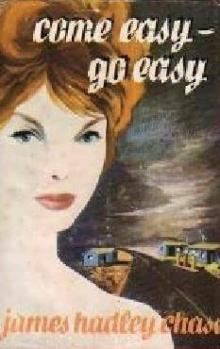 Come Easy, Go Easy
Come Easy, Go Easy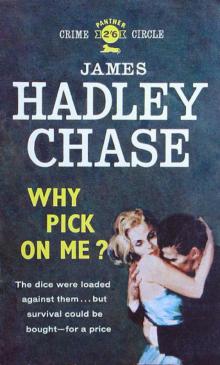 Why Pick On ME?
Why Pick On ME?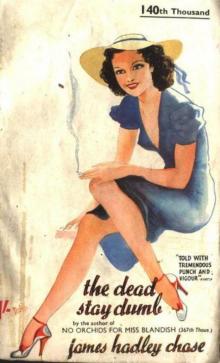 The Dead Stay Dumb
The Dead Stay Dumb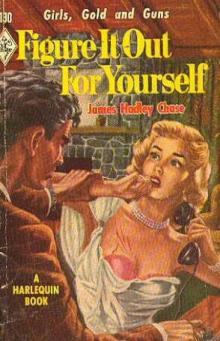 Figure it Out For Yourself
Figure it Out For Yourself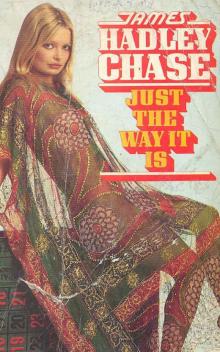 1944 - Just the Way It Is
1944 - Just the Way It Is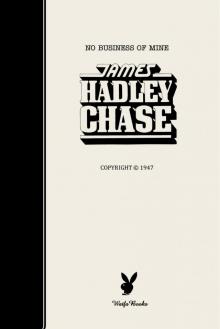 No Business Of Mine
No Business Of Mine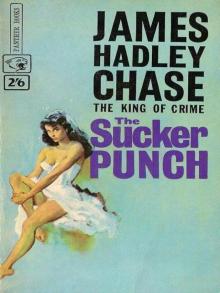 1953 - The Sucker Punch
1953 - The Sucker Punch Cade
Cade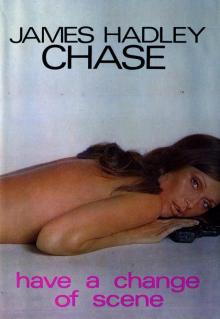 1973 - Have a Change of Scene
1973 - Have a Change of Scene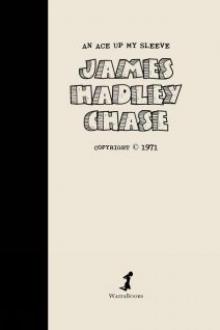 An Ace up my Sleeve
An Ace up my Sleeve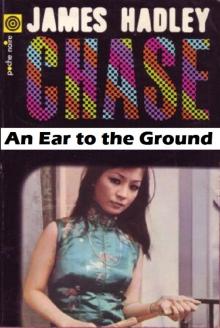 1968-An Ear to the Ground
1968-An Ear to the Ground 1950 - Figure it Out for Yourself
1950 - Figure it Out for Yourself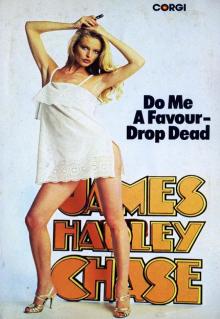 1976 - Do Me a Favour Drop Dead
1976 - Do Me a Favour Drop Dead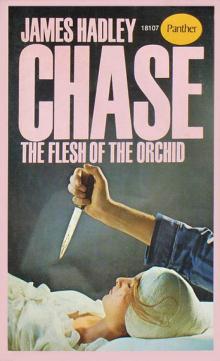 The Flesh of The Orchid
The Flesh of The Orchid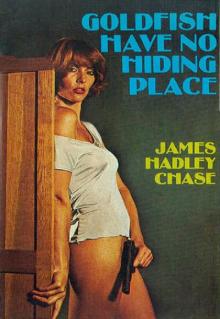 1974 - Goldfish Have No Hiding Place
1974 - Goldfish Have No Hiding Place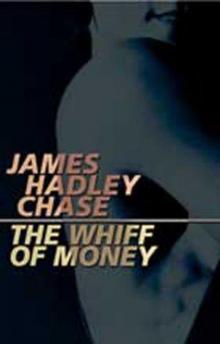 Whiff of Money
Whiff of Money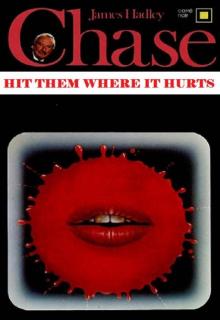 1984 - Hit Them Where it Hurts
1984 - Hit Them Where it Hurts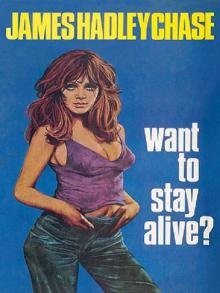 1971 - Want to Stay Alive
1971 - Want to Stay Alive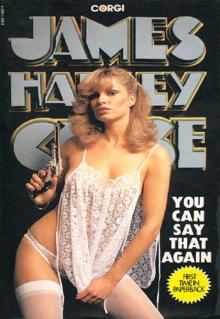 1980 - You Can Say That Again
1980 - You Can Say That Again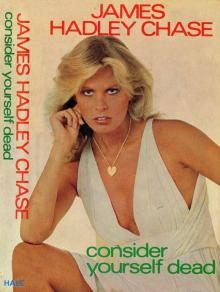 1978 - Consider Yourself Dead
1978 - Consider Yourself Dead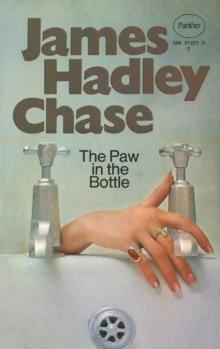 The Paw in The Bottle
The Paw in The Bottle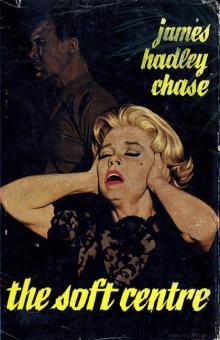 Soft Centre
Soft Centre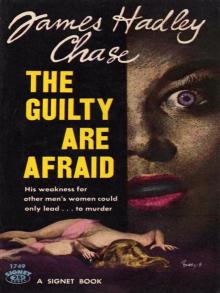 The Guilty Are Afraid
The Guilty Are Afraid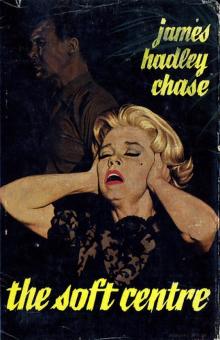 The Soft Centre
The Soft Centre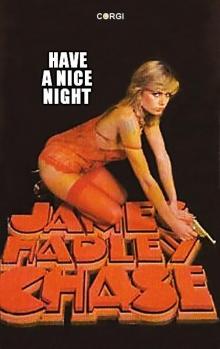 Have a Nice Night
Have a Nice Night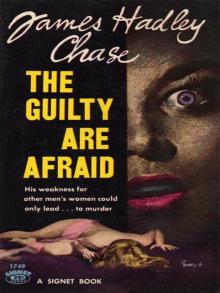 1957 - The Guilty Are Afraid
1957 - The Guilty Are Afraid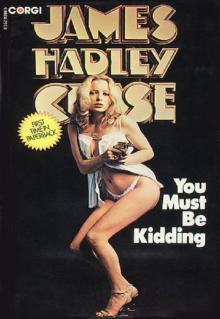 1979 - You Must Be Kidding
1979 - You Must Be Kidding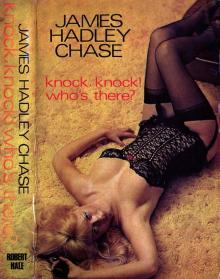 Knock, Knock! Who's There?
Knock, Knock! Who's There?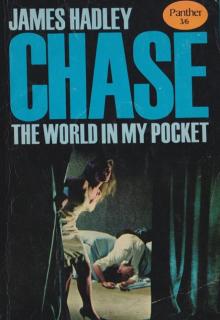 1958 - The World in My Pocket
1958 - The World in My Pocket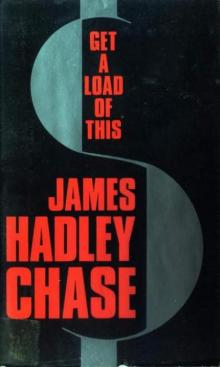 Get a Load of This
Get a Load of This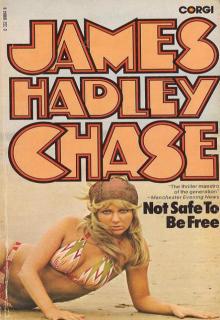 1958 - Not Safe to be Free
1958 - Not Safe to be Free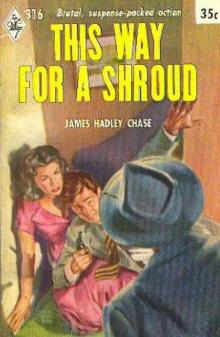 This Way for a Shroud
This Way for a Shroud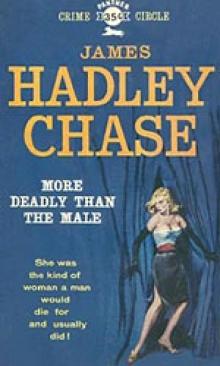 More Deadly Than the Male
More Deadly Than the Male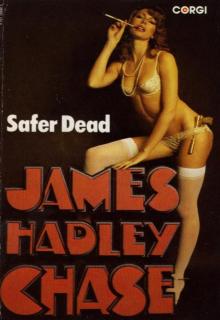 Safer Dead
Safer Dead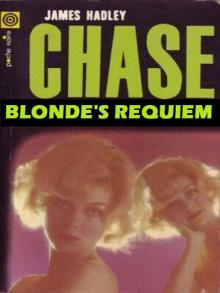 1945 - Blonde's Requiem
1945 - Blonde's Requiem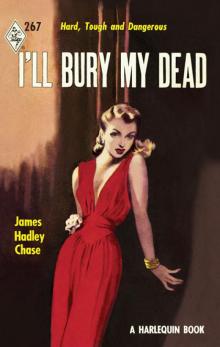 I'll Bury My Dead
I'll Bury My Dead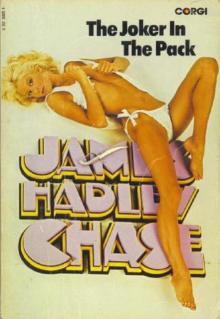 1975 - The Joker in the Pack
1975 - The Joker in the Pack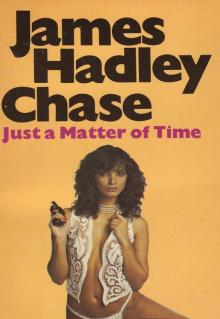 1972 - Just a Matter of Time
1972 - Just a Matter of Time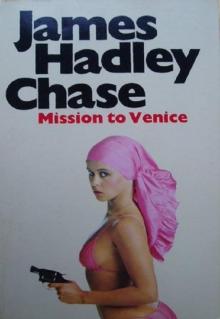 1954 - Mission to Venice
1954 - Mission to Venice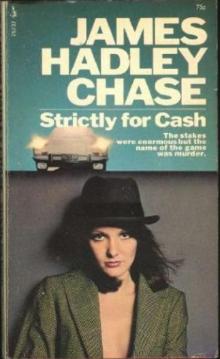 Strictly for Cash
Strictly for Cash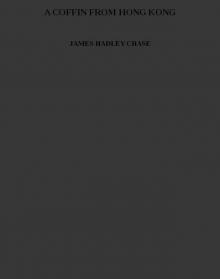 A COFFIN FROM HONG KONG
A COFFIN FROM HONG KONG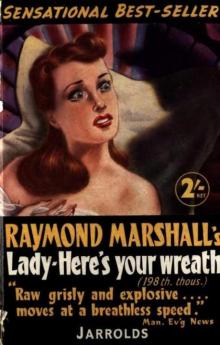 Lady—Here's Your Wreath
Lady—Here's Your Wreath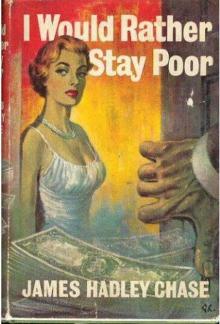 I Would Rather Stay Poor
I Would Rather Stay Poor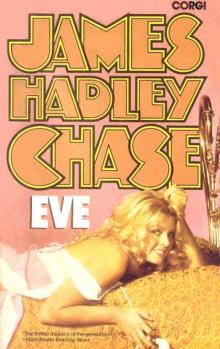 Eve
Eve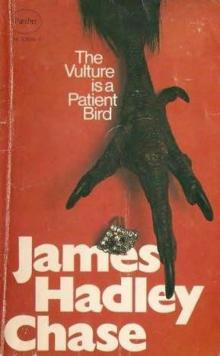 Vulture Is a Patient Bird
Vulture Is a Patient Bird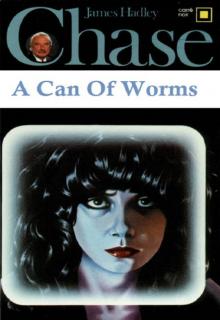 1979 - A Can of Worms
1979 - A Can of Worms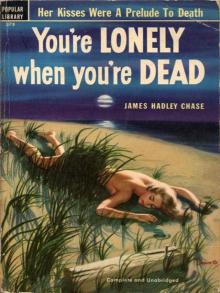 1949 - You're Lonely When You Dead
1949 - You're Lonely When You Dead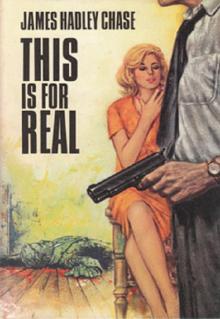 1965 - This is for Real
1965 - This is for Real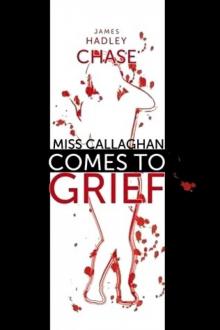 (1941) Miss Callaghan Comes To Grief
(1941) Miss Callaghan Comes To Grief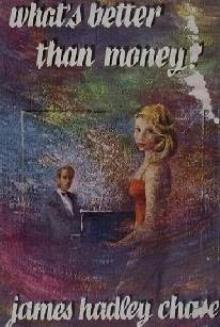 What`s Better Than Money
What`s Better Than Money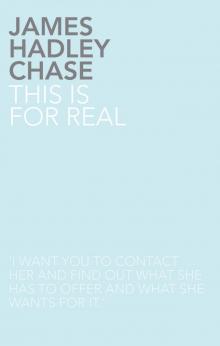 This is For Real
This is For Real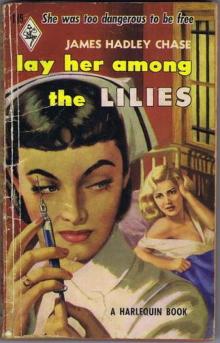 Lay Her Among the Lilies vm-2
Lay Her Among the Lilies vm-2 Knock Knock Whos There
Knock Knock Whos There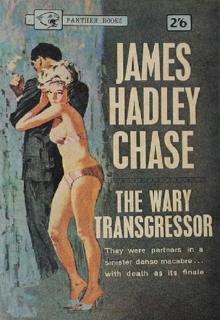 1952 - The Wary Transgressor
1952 - The Wary Transgressor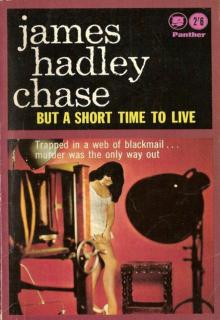 1951 - But a Short Time to Live
1951 - But a Short Time to Live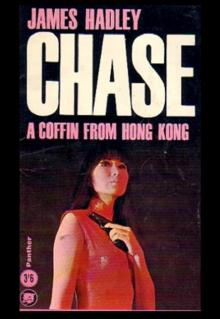 1962 - A Coffin From Hong Kong
1962 - A Coffin From Hong Kong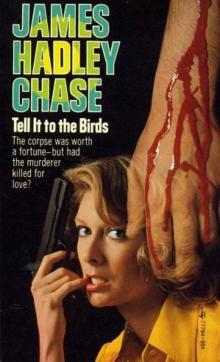 Tell It to the Birds
Tell It to the Birds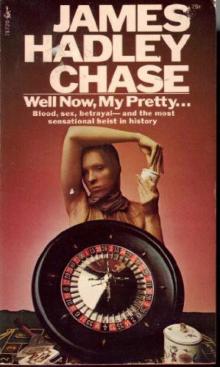 Well Now, My Pretty…
Well Now, My Pretty…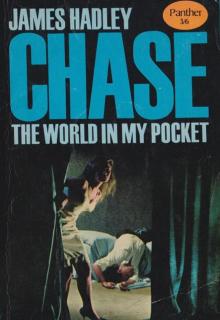 The World in My Pocket
The World in My Pocket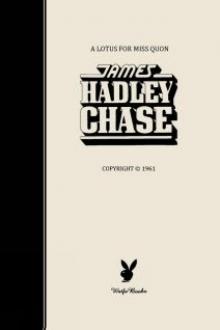 A Lotus for Miss Quon
A Lotus for Miss Quon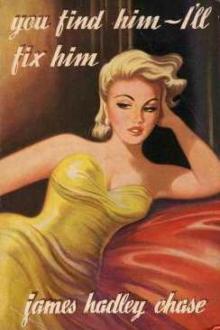 You Find Him, I'll Fix Him
You Find Him, I'll Fix Him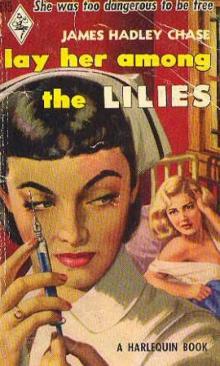 Lay Her Among The Lilies
Lay Her Among The Lilies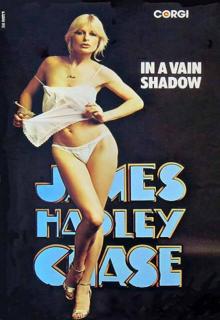 1951 - In a Vain Shadow
1951 - In a Vain Shadow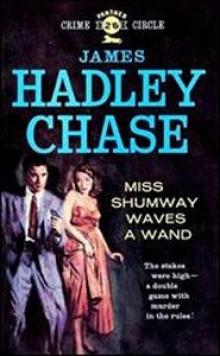 Miss Shumway Waves a Wand
Miss Shumway Waves a Wand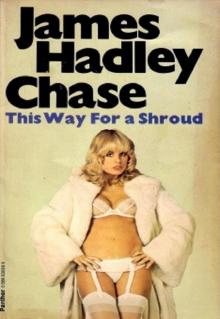 1953 - This Way for a Shroud
1953 - This Way for a Shroud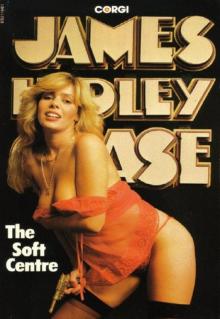 1964 - The Soft Centre
1964 - The Soft Centre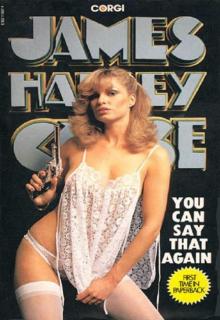 You Can Say That Again
You Can Say That Again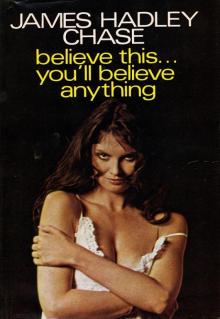 1975 - Believe This You'll Believe Anything
1975 - Believe This You'll Believe Anything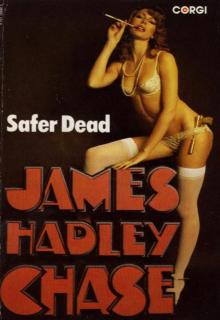 1954 - Safer Dead
1954 - Safer Dead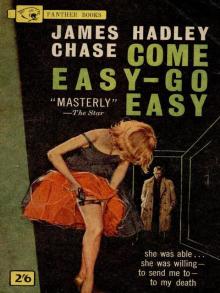 1960 - Come Easy, Go Easy
1960 - Come Easy, Go Easy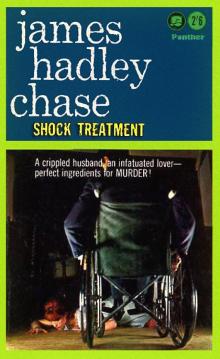 Shock Treatment
Shock Treatment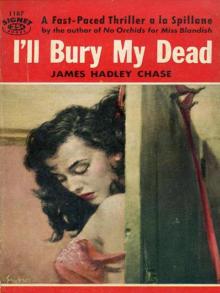 1953 - I'll Bury My Dead
1953 - I'll Bury My Dead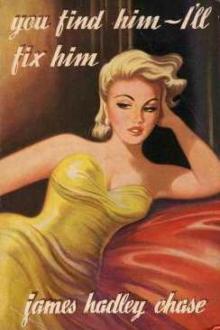 You Find Him – I'll Fix Him
You Find Him – I'll Fix Him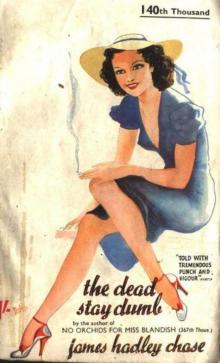 Dead Stay Dumb
Dead Stay Dumb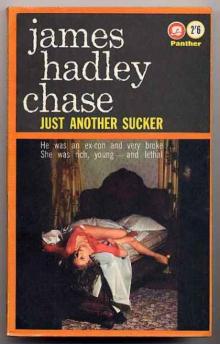 Just Another Sucker
Just Another Sucker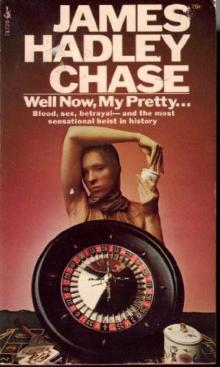 Well Now My Pretty
Well Now My Pretty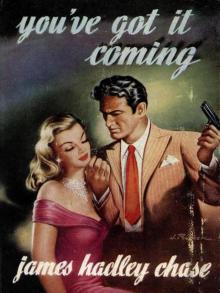 You've Got It Coming
You've Got It Coming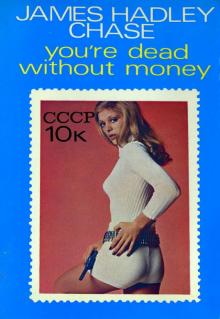 1972 - You're Dead Without Money
1972 - You're Dead Without Money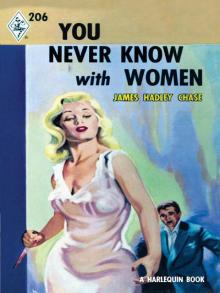 1955 - You Never Know With Women
1955 - You Never Know With Women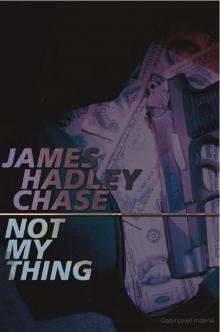 Not My Thing
Not My Thing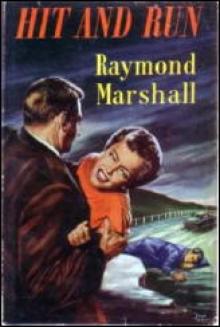 Hit and Run
Hit and Run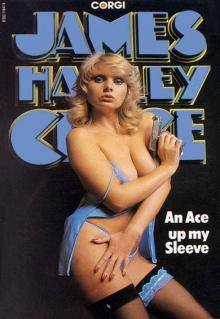 1971 - An Ace Up My Sleeve
1971 - An Ace Up My Sleeve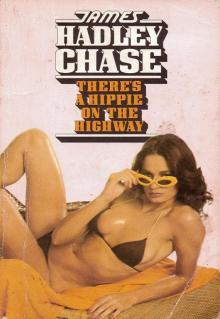 1970 - There's a Hippie on the Highway
1970 - There's a Hippie on the Highway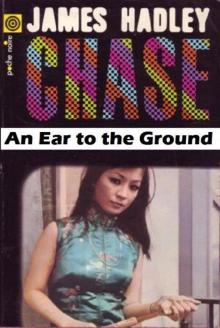 1968 - An Ear to the Ground
1968 - An Ear to the Ground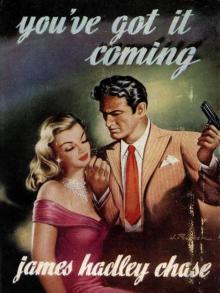 1955 - You've Got It Coming
1955 - You've Got It Coming 1963 - One Bright Summer Morning
1963 - One Bright Summer Morning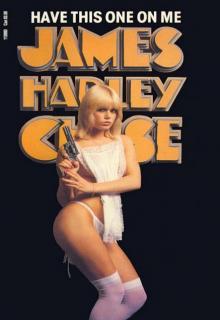 1967 - Have This One on Me
1967 - Have This One on Me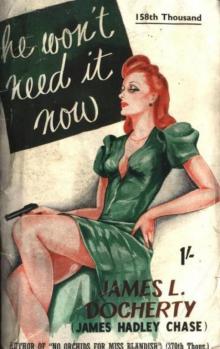 He Won't Need It Now
He Won't Need It Now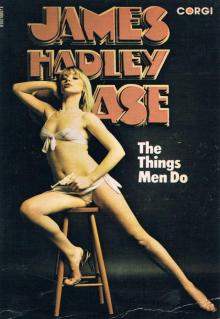 1953 - The Things Men Do
1953 - The Things Men Do Believed Violent
Believed Violent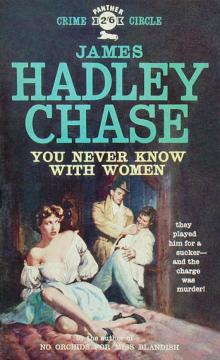 You Never Know With Women
You Never Know With Women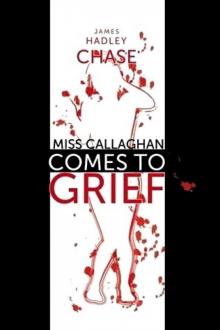 Miss Callaghan Comes to Grief
Miss Callaghan Comes to Grief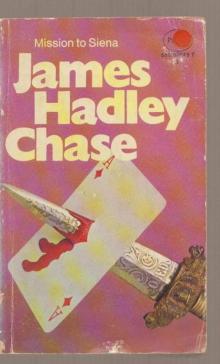 Mission to Siena
Mission to Siena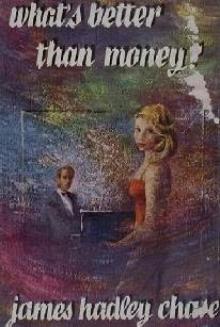 What's Better Than Money
What's Better Than Money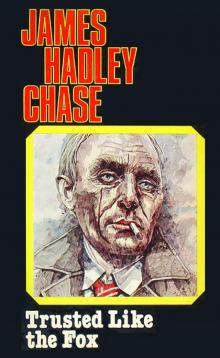 Trusted Like The Fox
Trusted Like The Fox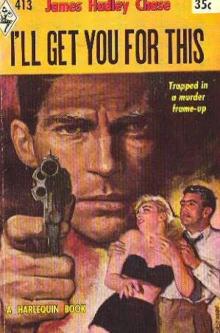 I'll Get You for This
I'll Get You for This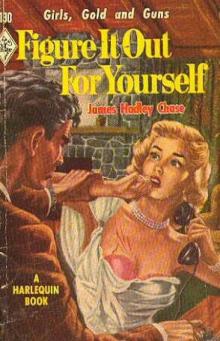 Figure It Out for Yourself vm-3
Figure It Out for Yourself vm-3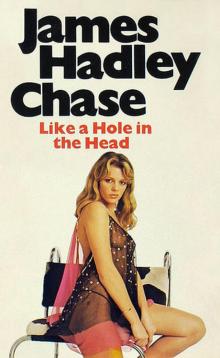 Like a Hole in the Head
Like a Hole in the Head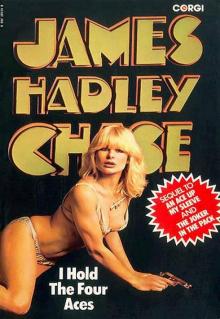 1977 - I Hold the Four Aces
1977 - I Hold the Four Aces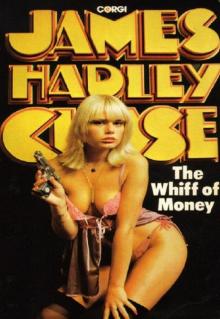 1969 - The Whiff of Money
1969 - The Whiff of Money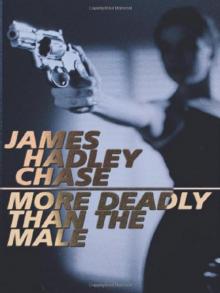 1946 - More Deadly than the Male
1946 - More Deadly than the Male 1956 - There's Always a Price Tag
1956 - There's Always a Price Tag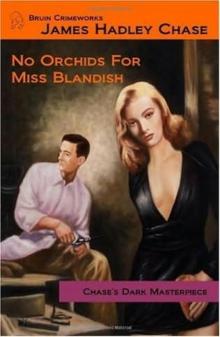 No Orchids for Miss Blandish
No Orchids for Miss Blandish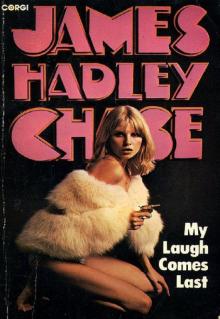 1977 - My Laugh Comes Last
1977 - My Laugh Comes Last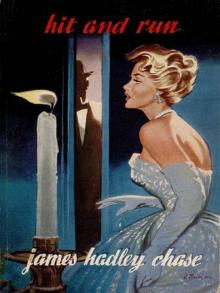 1958 - Hit and Run
1958 - Hit and Run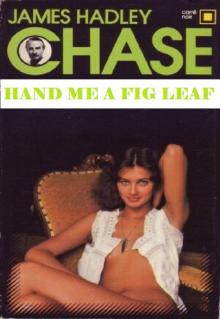 1981 - Hand Me a Fig Leaf
1981 - Hand Me a Fig Leaf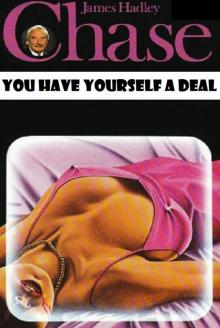 1966 - You Have Yourself a Deal
1966 - You Have Yourself a Deal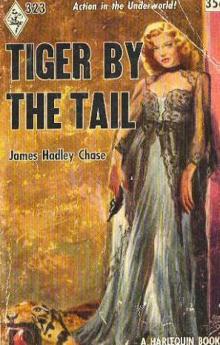 Tiger by the Tail
Tiger by the Tail